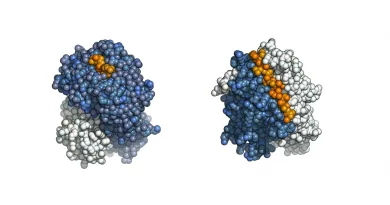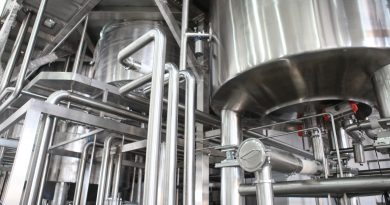Drug-Induced Liver Injury (DILI) Assay Panels
Signatope has developed cutting-edge assay panels designed to accurately quantify clinically relevant biomarkers for drug-induced liver injury (DILI). These panels address the critical need for accurate biomarker quantification, enhancing the precision of safety assessments in both preclinical and clinical settings.
The cutting-edge SIGNATOXTM assay panels go beyond traditional markers, offering a deeper look at liver health through the measurement of multiple clinically relevant biomarkers. Their advanced technology ensures highly accurate and specific results, enabling researchers to detect potential DILI issues sooner. This early detection translates to faster and more cost-effective drug development timelines by avoiding late-stage failures due to unforeseen liver toxicity.
Drug-Induced Liver Injury (DILI) Assay Panels
Signatope’s SIGNATOXTM DILI panels are designed to complement established markers such as albumin, total bilirubin, transaminases, and prothrombin. The multiplexed assay allows for the simultaneous quantification of MCSF1R, OPN, HMGB1, and GLDH in a single analytical run. Advanced immunoprecipitation and mass spectrometry techniques ensure high accuracy, sensitivity, and specificity. Unlike traditional ELISA methods, these assays eliminate matrix effects for OPN and MCSF1R, providing more reliable data.
Multiplexed Assays for Accurate Biomarker Measurement
These assays enhance the sensitivity and specificity of liver injury detection, enabling more accurate and early identification of hepatotoxicity. This can lead to more informed decision-making in drug development, potentially reducing the time and cost associated with bringing new drugs to market. Additionally, the ability to use these assays across different species bridges the gap between preclinical and clinical research, facilitating smoother transitions and more reliable results. The high throughput and minimal sample requirements make these assays highly efficient and cost-effective, while their validated and reproducible results provide robust data to support regulatory submissions and clinical studies.
Essential Tools for Compliant Safety Assessments
The validated assays, adhering to FDA and EMA guidelines, are essential for both preclinical and clinical safety assessments. Early detection of hepatotoxicity is crucial in drug development to avoid costly late-stage failures. The detailed reports generated by these assays support regulatory submissions, streamlining the approval process. By providing comprehensive biomarker panels, Signatope enhances toxicology studies and improves the understanding of the toxicological profiles of new compounds, contributing to safer drug development.
Advancing Biomarker Research and Diagnostic Capabilities
The SIGNATOXTM panels are invaluable in research settings, supporting biomarker discovery, mechanistic studies, and comparative analyses. Their high sensitivity and specificity facilitate the discovery and validation of new liver injury biomarkers. Detailed quantification allows researchers to investigate the mechanisms underlying liver injuries and diseases. The ability to use these assays across multiple species supports translational research from animal models to human applications.
Efficient Workflows Backed by Extensive Experience
Signatope’s extensive experience in biomarker quantification since 2016 guarantees superior results. Efficient workflows require minimal sample amounts and allow the analysis of hundreds of samples within a week, significantly outpacing standard targeted proteomics approaches. The batch processing concept, including calibration curves and biological quality control samples, ensures reproducibility and reliability in every analysis. Detailed reports designed to support data submissions seamlessly provide clear and actionable insights.
Cutting-Edge Technology for High-Accuracy Results
Signatope’s proprietary technology combines motif-specific antibodies with mass spectrometric readout, ensuring high-affinity binding and accurate quantification of target biomarkers. This technology provides high sensitivity and is capable of detecting low-abundant biomarkers in complex biological samples such as plasma, urine, tissues, cell pellets, or lysates. Mass spectrometry ensures precise and accurate readouts, guaranteeing the highest data integrity.
Focused on FDA-Qualified Biomarkers for Comprehensive Analysis
Focusing on the biomarker candidates accepted at the FDA’s Biomarker Qualification Program – MCSF1R, OPN, HMGB1, and GLDH – Signatope has developed two comprehensive panels addressing both apoptotic and necrotic liver injury processes. These biomarkers reflect critical pathological processes in DILI, and their inclusion in the FDA’s program underscores their clinical relevance and importance in hepatotoxicity testing.
Rigorous Validation for Consistent and Reproducible Results
Signatope’s assays undergo rigorous validation to ensure consistent and reproducible results across different sample types, including EDTA-plasma, tissues, and cells. Parameters such as intra-assay and inter-assay precision and accuracy are thoroughly tested, ensuring the reliability of data for both preclinical and clinical samples. The panels measure biomarkers including MCSF1R, OPN, HMGB1, GLDH, K18, and ccK18 to provide a comprehensive evaluation of liver health and damage.
Biomarker Quantification – Expert Support and Guidance Throughout the Process
Signatope offers comprehensive support and guidance throughout the quantification process. Their team of experienced scientists assists with experimental design, sample preparation, and data analysis, ensuring clients obtain meaningful and interpretable results. Specific sample requirements include EDTA-plasma with minimal volumes required for each analysis, stored at -80°C and shipped on dry ice.
Supported by Extensive Scientific Literature
The methodologies and results of Signatope’s assays are supported by extensive literature. The international Translational Safety Biomarker Pipeline (TransBioLine) project is investigating several mechanistic protein biomarkers for DILI characterization, enhancing the understanding of liver injury mechanisms. Studies such as Anselm et al. (2020) on matrix and sampling effects, and Wegler et al. (2017) on the variability in mass spectrometry-based quantification, underscore the reliability and precision of Signatope’s technology.
Pioneering Immunoassay Development for Liver Injury Detection
Signatope continues to develop immunoassays for drug-induced liver, kidney, vascular, and pancreas injury. Their unique test system quantifies identical protein biomarkers across all species using identical tests in both preclinical and clinical phases. This approach streamlines test procedures, making cross-validation of different tests obsolete, and significantly advances translational safety biomarker research.
Signatope’s innovative approach to biomarker quantification sets a new standard in the field, driving advancements in safety assessments and translational research. For more information, contact Signatope via the Quick Contact form or email: info@signatope.com
Quick Contact Form – Signatope







